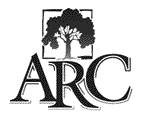
Computer Information Science
 |
Michael L'Estrange Computer Information Science |
|
|
|
||
Note: (For students who do not read syllabi)
This syllabus is subject to change, changes will be announced during lecture, and all changes will probably only be reflected in the online course management system.
Online lectures may be prerecorded or scheduled and live streamed; however, attendance online is not mandatory, and students will have the option to view the recorded streamed lecture later.
Students are responsible for all information or announcements presented during lecture.
The preferred way to communicate with the instructor online, is through the messaging system within the course management system itself.
Fully online students who do not access the online course management site during the first 7 days of the course will be dropped having never attended the course.
A fully online student may be dropped if the student does not access the online course management site at least once every 7 days during the semester.
| Instructor: | Michael L'Estrange |
|---|---|
| Instructor Email: | lestram@arc.losrios.edu |
| Instructor Web Page: | http://ic.arc.losrios.edu/~lestram |
| Instructor Office: | ARC main campus, STEM 221 |
| Office hours: | Note: Office hours may often be held in STEM 205 Mon 4:30-5:30pm Tues 4:30-5:30pm and 7:00-8:00pm Weds 4:30-5:30pm Thurs 4:30-5:30pm |
| Course Code #: | 10537 |
| Class Location: | STEM 205 + Online |
| Meeting Times: | Th 5:30pm-7:20pm |
| Semester: | Fall 2024 |
| Term: | Fall 2024 | First Eight Weeks | 24 Aug 2024 - 16 Oct 2024 |
| First Meeting: | Thursday 29 Aug 2024 |
| Final Exam: | Thursday 10 Oct 2024 |
| Prerequisite: | None. |
| Advisory: | None. |
| Accepted for credit: | CSU |
| Hours: | 18 hours lecture; 18 hours laboratory. |
| Units: | 1 |
This course introduces the basic features of the Windows operating system for the PC. Topics include managing files, folders, and libraries, operating system services, program management, maintenance of disks and storage media, Windows desktop, browser basics, and the Windows help system. A brief introduction to security and the command prompt is also covered.
Upon completion of this course, the student will be able to:
Required:
Optional:
Windows 10 Step by Step
Joan Lambert, Steve Lambert
Microsoft Press, ©2015
ISBN: 9780735697959
Completion of the exercises and projects required for this class requires access to a computer loaded with special software, such as the Linux operating system, virtual machine software, packet tracer, or other special software. To complete lab assignments, students may use the ARC CSIT Area Computer Lab, Room STEM 301. It is not necessary to purchase special software, as most of the software is free, open source, or provided at no cost to the student.
Online Discussions
During the semester you will have access to a course website. These websites allow for intraclass communication with other students through messages, online discussions or forums, etc. The instructor in general will not monitor these communications. However, abusive remarks or attacks against others will not be tolerated and will result in disciplinary actions taken by the instructor and/or college.
This below schedule is an example only; Refer to the online course management system for all assignment and due dates after the first day of class.
| CISC 320 Course Lesson Plan | ||
|---|---|---|
| Week of: |
Topics | Assignment |
| Week 1 |
|
|
Week 2 |
|
|
| Week 3 |
|
|
| Week 4 |
|
|
| Week 5 |
|
|
| Week 6 |
|
|
| Week 7 |
|
|
| Week 8 |
|
|
| Grade Assessment Weighting | |
|---|---|
| Quizzes |
(175 points) 35% |
| Lab Assignments |
(175 points) 35% |
| Final Examination/Lab Final | (150 points) 30% |
| Grade Assignment by Total Points | ||
|---|---|---|
| Points Obtained | Total % | Grade Assigned |
| 451+ | 90% | A |
| 401+ | 80% | B |
| 351+ | 70% | C |
| 301+ | 60% | D |
| less than 300 | below 60% | F |